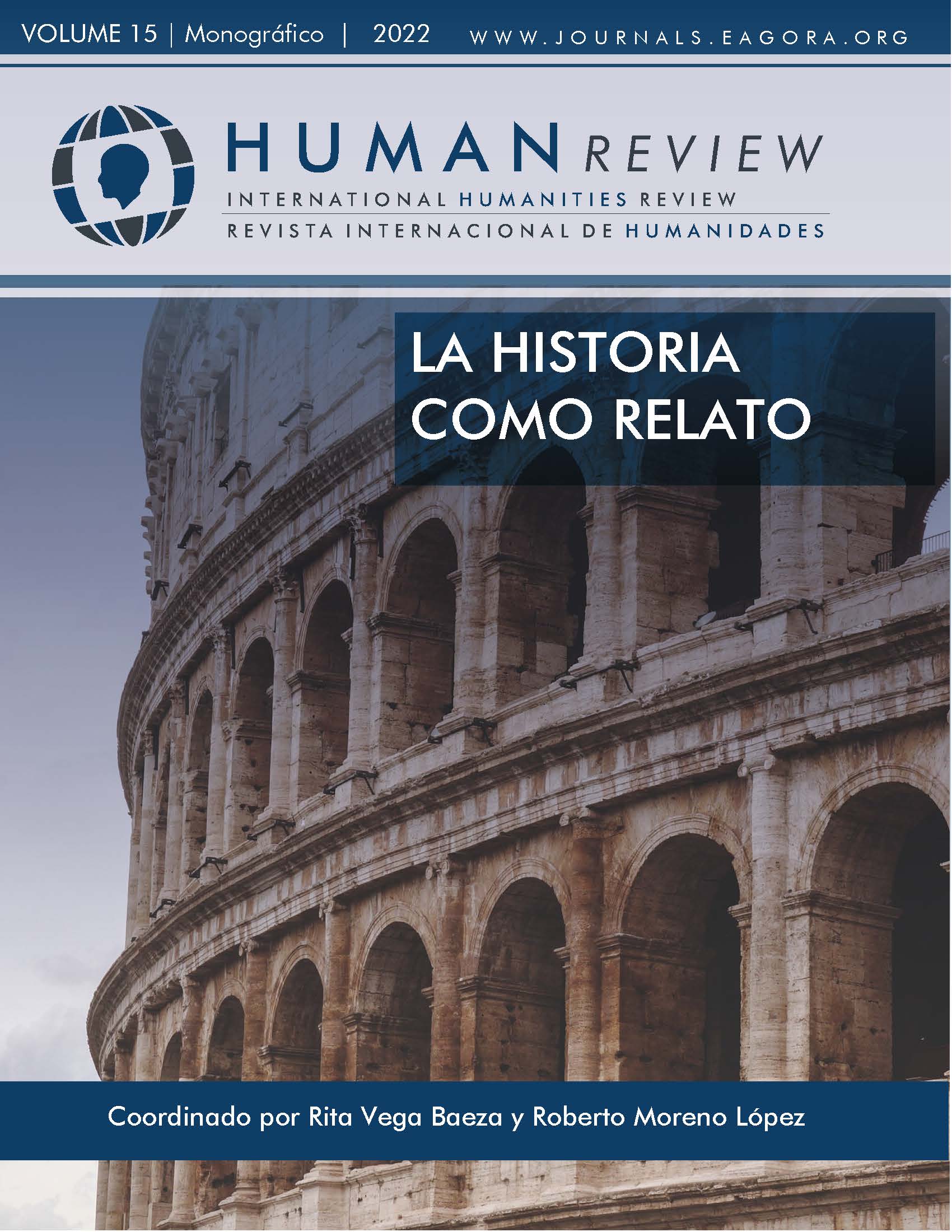The American Constitution and the Spanish Constitutions of 1812 and 1978
Changes and structures explained through the uncertainty avoidance dimension and other cultural dimensions
DOI:
https://doi.org/10.37467/revhuman.v11.4219Palavras-chave:
American Constitution, Spanish Constitution 1812, Spanish Constitution 1978, Uncertainty avoidance, Individualism, Power distance, Diffuse versus specificResumo
This paper analyses the American Constitution of 1787 and the Spanish Constitutions of 1812 and 1978. The objective is to analyse their structures and the changes they have undergone throughout history, to find differences that can be explained by the different cultural values that these two groups normally display. As will be seen, the cultural dimension of uncertainty avoidance, amongst others, is the one that has a greater presence in this study. The conclusions drawn from this study show that cultural groups change throughout history, but the cultural roots that they inherit seem to be present through the times.
Referências
Arieli, Y. (2013). Individualism and nationalism in American ideology. Harvard University Press. https://doi.org/10.4159/harvard.9780674280090.fm
Álvarez Rodríguez, I. (2020). El debate sobre la reforma constitucional con perspectiva de género. In A. Pérez Miras, G. M. Teruel Lozano, E. C. Raffiotta, M. P. Iadicicco, & S. Romboli, (Eds.). Setenta años de Constitución italiana y cuarenta años de Constitución española (pp. 287-304). Agencia Estatal Boletín Oficial del Estado.
Constitución Española de 1978 (1978). BOE Boletín Oficial del Estado, 311. https://www.boe.es/eli/es/c/1978/12/27/(1)/con
Constitución Política de la Monarquía Española (1812). https://www.congreso.es/constitucion/ficheros/historicas/cons_1812.pdf
Constitution of the United States (1787). United States Senate. https://www.senate.gov/civics/constitution_item/constitution.htm
Davenport, D., & Lloyd, G. (2017). Rugged individualism: Dead or alive? Hoover Press.
Dawkins, R. (1976). The selfish gene. Oxford University Press.
Dawkins, R., & Davis, N. (2017). The selfish gene. Macat Library. https://doi.org/10.4324/9781912281251
Díaz Revorio, F. J. (2004). Perspectivas de reforma de la Constitución española. Parlamento y Constitución, 8, 11-38.
Faisal, C. M., Gonzalez-Rodriguez, B. M., Fernandez-Lanvin, D., & Andrés Suarez, J. (2017). Web design attributes in building user trust, satisfaction, and loyalty for a high uncertainty avoidance culture. IEEE Transactions on Human-Machine Systems, 47(6), 847-859. https://doi/10.1109/THMS.2016.2620901.
Frisby, C. (2017). A content analysis of Serena Williams and Angelique Kerber’s racial and sexist microaggressions. Open Journal of Social Sciences, 5, 263-281. https://doi.org/10.4236/jss.2017.55019
García Gestoso, N. (2012). La reforma de la Constitución de Cádiz. Algunas consideraciones a propósito de la defensa de la Constitución [1]. Civitas Europa, 29, 53-77. https://doi.org/10.3917/civit.029.0053
Goodenough, A. (1970). Description and comparison in cultural anthropology. Aldine.
Hall, E. T. (1959). The silent language. Doubleday.
Hampden-Turner, C., & Trompenaars, F. (1998). Riding the waves of culture. McGraw-Hill.
Hampden-Turner, C., & Trompenaars, F. (2000). Building cross-cultural competence. Wiley.
Harris, M. (1968). El desarrollo de la teoría antropológica. Siglo XXI.
Harvey, E. (1995). Derechos culturales. Colección Cátedra Unesco. https://www2.congreso.gob.pe/sicr/cendocbib/con5_uibd.nsf/29123E3F329744B8052582820073C5F3/$FILE/DerechosCulturales.pdf
Hofstede, G. (1980). Culture’s consequences. Sage.
Hofstede, G. (1991). Cultures and organizations: Software of the mind. McGraw-Hill.
Hofstede, G., Hofstede, G. J., & Minkov, M. (2010). Cultures and organizations: Software of the mind. McGraw-Hill.
Kluckhohn, F., & Strodtbeck, F. (1961). Variations in value orientations. Row, Peterson.
Lamprianou, I. (2020). Μeasuring and visualizing coders’ reliability: New approaches and guidelines from experimental data. Sociological Methods & Research. https://doi.org/10.1177/0049124120926198
Lawler, P. A., & Reinsch, R. M. (2019). Constitution in full: Recovering the unwritten foundation of American liberty. University Press of Kansas. https://muse.jhu.edu/book/67134.
Leaptrott, N. (1996). Rules of the game: Global business protocol. Thomson Executive Press.
Li, J., & Harrison, R. (2008). National culture and the composition and leadership structure of boards of directors. Corporate Governance: An International Review, 16, 375-385. https://doi.org/10.1111/j.1467-8683.2008.00697.x
Martín, D. (6th December 2017). La Constitución española: sólo dos reformas frente a cientos de sus hermanas europeas. Público. https://www.publico.es/politica/constitucion-espanola-reformas-frente-cientos-hermanas-europeas.html
Martínez López-Muñiz, J. L. (2000). La familia en la Constitución española. Revista Española de Derecho Constitucional, 58, 11-43. https://www.jstor.org/stable/24883470
Pacheco Baldó, R. M. (2020). El discurso y las dimensiones culturales en el contexto de las páginas web de residencias de mayores españolas y estadounidenses. Discurso y Sociedad, 14(2), 393-420. http://www.dissoc.org/ediciones/v14n02/DS14(2)-PachecoBaldo.
Pérez Luño, A. E. (2007). Dimensiones de la igualdad. Cuadernos «Bartolomé de las Casas», n.º 34. Dykinson.
Pérez Royo, J. (1987). La reforma de la Constitución. Publicaciones del Congreso de los Diputados.
Pike, K. L. (1967 [1954]). Language in relation to a unified theory of the structure of human behavior. (2nd. ed.). Mouton.
Potter, D. M. (2019). American individualism in the twentieth century. In R. Wilkinson (Ed.). American Social Character. (1st Ed. 1992). Routledge. https://doi.org/10.4324/9780429034879
Scollon, R., & Scollon, S. W. (2005). Discourse and intercultural communication. In D. Schiffrin, D. Tannen, & H. E. Hamilton, (Eds.). The handbook of discourse analysis (pp. 537-547). https://doi.org/10.1002/9780470753460.ch28
Van den Hoonaard, W. (2008). Inter- and intracoder reliability. In L. Given, (Ed.). The Sage encyclopaedia of qualitative research methods (pp. 446–47). Sage Publications. https://doi.org/10.4135/9781412963909.n223
Downloads
Publicado
Como Citar
Edição
Seção
Licença
Os autores/as que publicam nesta revista concordam com os seguintes termos:
- Os autores/as terão os direitos morais do trabalho e cederão para a revista os direitos comerciais.
- Um ano após a sua publicação, a versão do editor estará em acesso aberto no site da editora, mas a revista manterá o copyright da obra.
- No caso dos autores desejarem asignar uma licença aberta Creative Commons (CC), poderão a solicitar escrevendo a publishing@eagora.org.









